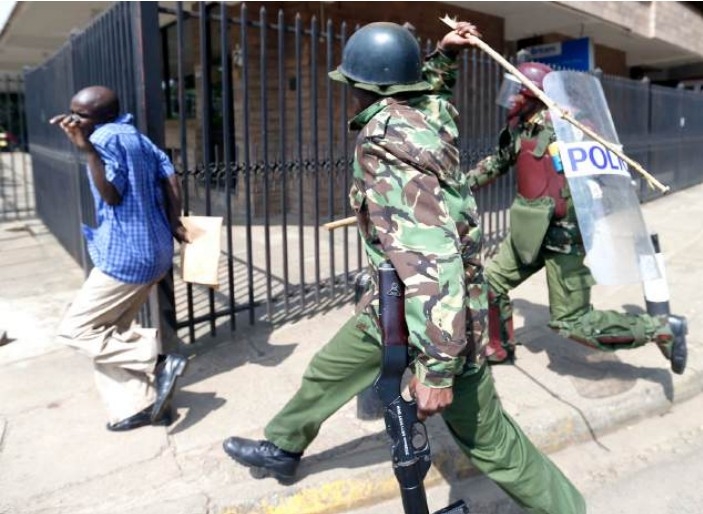Infants are one of the purest sources of information about human thinking and learning because they have had very few life experiences.
If they are left in the same environment, over time they become accustomed to their surroundings and pay less attention to them.
This process is called habituation.
However, the moment something new happens, infants pay attention again. This re-engagement following habituation is called dishabituation.
Habituation is also known as the ‘get used to it’ concept. It is a psychological learning process wherein there is a decrease in response to a stimulus after being repeatedly exposed to it.
Both animals and humans learn to ignore a stimulus because of repeated exposure to it.
A couple of weeks ago, the nation experienced a national power blackout for several hours.
The institutions concerned offered explanations and theories of the cause of the blackout.
They answered questions we did not ask but left out the key questions we all wanted answers to. We were not interested in knowing who was at fault.
We wanted to know, and still would like to know, how was such a failure of this magnitude possible. And what is the likelihood of reoccurrence?
One of the key installations that was not spared of this national shame was the Jomo Kenyatta International Airport.
As expected, not even the backup generators could cover our shame as the facility experienced pitch-black darkness that crippled operations for outgoing and incoming passengers.
We were later to learn that although there were backup generators that had been procured in case of similar emergencies, they had not been commissioned two years later.
In response, the Transport and Roads Cabinet Secretary under whose ministry the airport falls went on social media, apologised and promised immediate action.
This was to assure us that the buck stops with him. And true to his word, on the following day after consultation with relevant parties, the Director of the Kenya Airports Authority was fired.
Following closely on the heels of this action, were floods of congratulatory messages to the CS. It was hailed as a good leadership attribute.
This begs the question, was it a leadership attribute or dishabituation?
I submit that we were temporarily dishabituated. We have become habituated not to the ethos of formal democratic or service delivery rules and institutions enshrined in our constitution, but to a predictable pattern in which the discourse on corruption, mediocrity and poor service delivery have all become a popular circular topic in our everyday conversations.
And when we are done inconclusively dissecting one scandal, we quickly move on to the next, having forgotten the immediate previous one.
We have become so accustomed to mediocrity that when what is a standard practice in other well-governed jurisdictions happens within our territory, we send accolades of good leadership to the appointing authority.
One of the hallmarks of civilised societies is the reliability of basic services, such as electricity, sanitation and transportation.
So crucial is electricity that in 2000, the National Academy of Engineering chose electrification as the number one engineering achievement of the 20th century.
13 of the top 20 achievements are directly dependent on electrification, such as general electronic goods, health technologies, communication equipment and household appliances.
The recent national blackout is the episode that reveals that as a nation we may not be as advanced as we think.
This cannot be, respectfully, the norm, particularly in a country that positions itself for its technological prowess and as a destination of choice for domestic and foreign investments.
There is an oligarchy and monopoly that has a tyranny on energy production and distribution, respectively.
In economic-speak, these market models exist when there is imperfect competition.
As regulated market structures, they do not function as a private company would in a competitive marketplace.
They do not need to compete for customers by offering more value for shilling than other companies.
Instead, they are guaranteed a rate of return regardless of the quality of service they provide.
This type of market structure leads to some obvious problems. The chief problem is the absence of incentives to innovate and improve their service delivery.
In a competitive marketplace, different companies can offer different options, including better customer service, lower prices, or compensation to users in the case of blackouts. Not so in these models.
If a company in a competitive marketplace fails to adequately account for or preempt such blackout episodes, they would be confronted with huge liabilities that would drive them out of business.
Their competitors would learn from their mistakes, fill the void and ensure continued improved service. This is called the market correcting itself.
Due to our habituation as a citizenry, the heads of the tyranny of energy provision typically behave like snails.
A snail will withdraw its body when its shell is tapped.
This withdrawal response is an innate behaviour that helps it to avoid predation.
If the snail’s head is tapped repeatedly, but the snail is not attacked by a predator, then the snail stops making the withdrawal response.
We have become accustomed to poor service delivery. We do not demand better.
Resultantly, the heads of these institutions, like the snail whose shell is repeatedly tapped but not attacked, do not expect any repercussions.
And because our expectations are so low or nonexistent in many cases, this is what sprouted the accolades of leadership when the KAA director was fired.
We were dishabituated. It was not leadership. The norm is that the director should not have waited to be fired. He ought to have long resigned.
Finally, my unsolicited advice is to the Transport and Roads CS.
It is all fine and dandy to have taken the public action that demonstrated that the buck stops with you.
No. The buck does not stop with you. You are the buck. What is remarkable about your firing the KAA director is precisely how unremarkable it is.
When all you know is pain you don’t know that that is not normal – S. Sandron














![[PHOTOS] How ODM@20 dinner went down](/_next/image?url=https%3A%2F%2Fcdn.radioafrica.digital%2Fimage%2F2025%2F11%2F99d04439-7d94-4ec5-8e18-899441a55b21.jpg&w=3840&q=100)

